A New Era of Hope
The Fall of the Berlin Wall significanlty impacted the future of democratic ideaologies throughout Europe.
I. The Reunion
Shortly after the Fall of The Berlin Wall, West and East Germany reunited into one country, bringing the people of Germany together.
"The reunification of Germany has our wholehearted support. We see it as the end of an artificial division and the triumph of freedom over oppresion."
George H.W. Bush, U.S. President, 1990

Oct 3, 1990, young German citizens light flares in front of Berlin's Reichstag to celebrate German unification, Courtesy of Politico
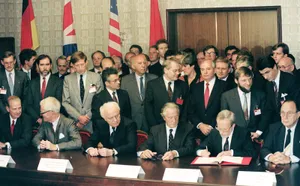
The final "two plus four" meeting for German reunification on September 12, 1990, in Moscow, courtesy of Britannica.
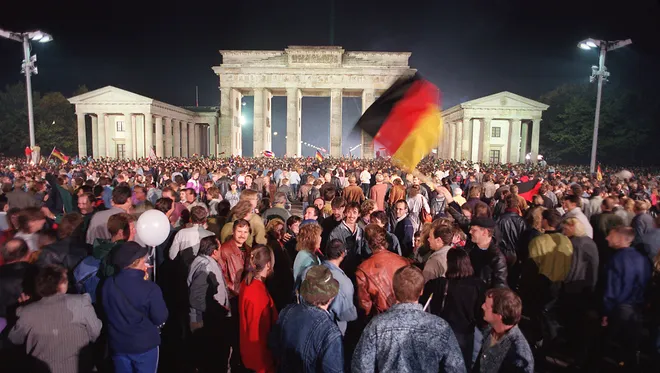
Germans gather as they celebrate German reunificatino, Oct 3, 1990, courtesy of USA Today
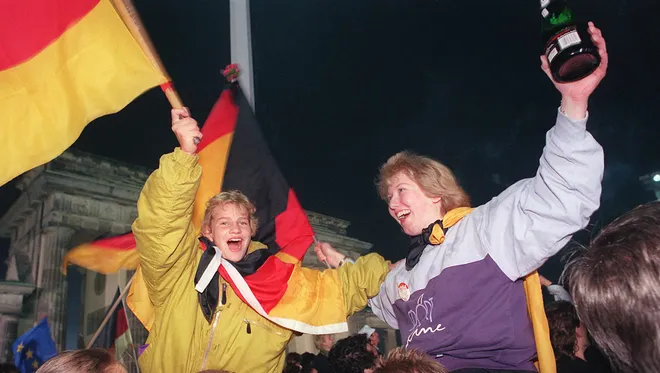
Germans waving their country's flag during the celebration of German reunification, Oct 3, 1990, courtesy of USA Today
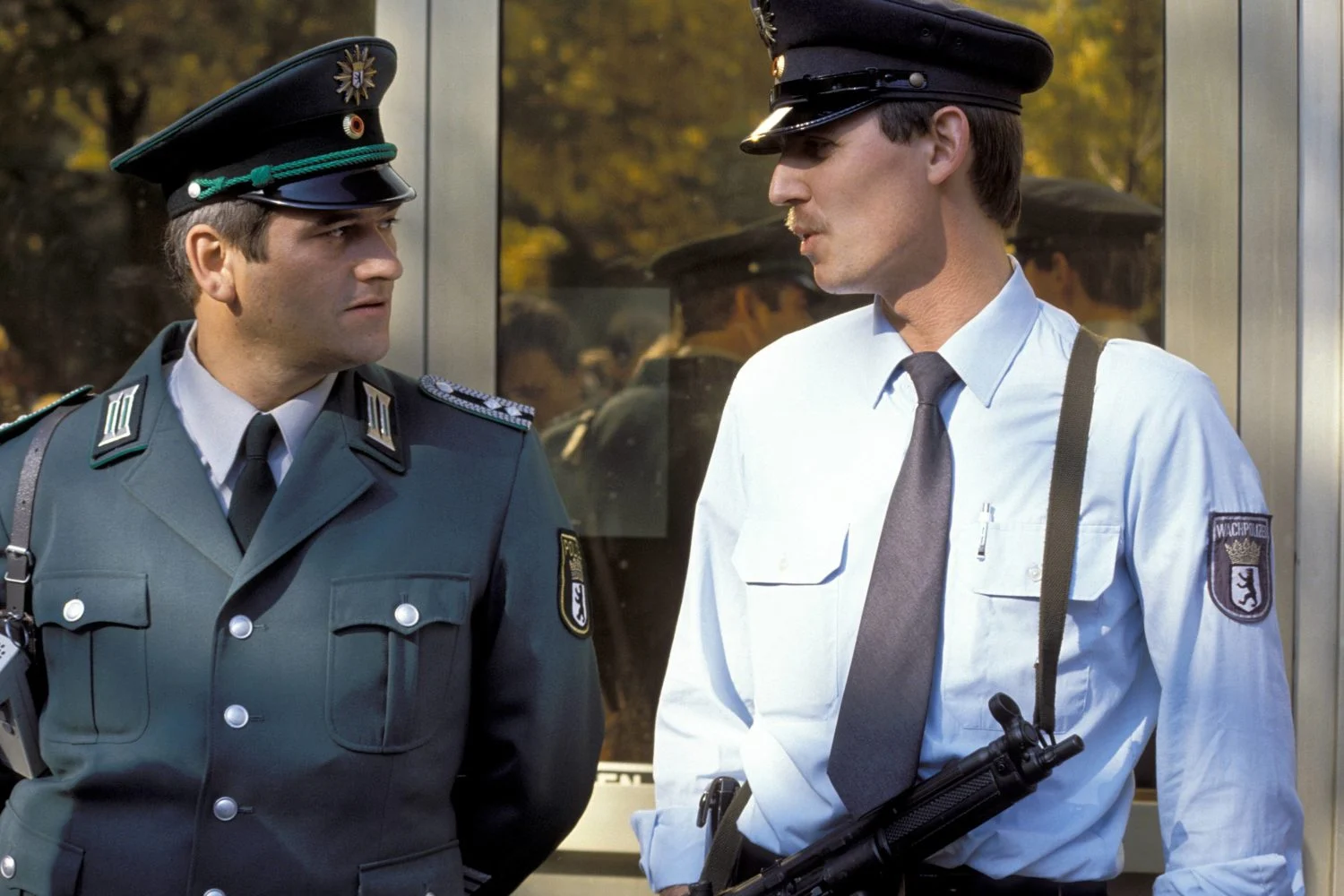
A East German(left) and West German(right) police officers having a brief chat after German reunification, courtesy of USA Today
II. New Democratic Chapter
"This is a victory for democracy and freedom. Every American can take pride in this achievement."
- President George H. W. Bush, 1989
Shortly after the Berlin Wall's fall, the Cold War ultimateley ended in 1991 with the collapse of the Soviet Union, marking the end of decades of political and ideoligical tension between the United States and the Soviet Union. The Wall's fall symbolized the terminatinon of communist influence in Eastern Europe leading to the dawn of a new era of global cooperatoiin and freedom.
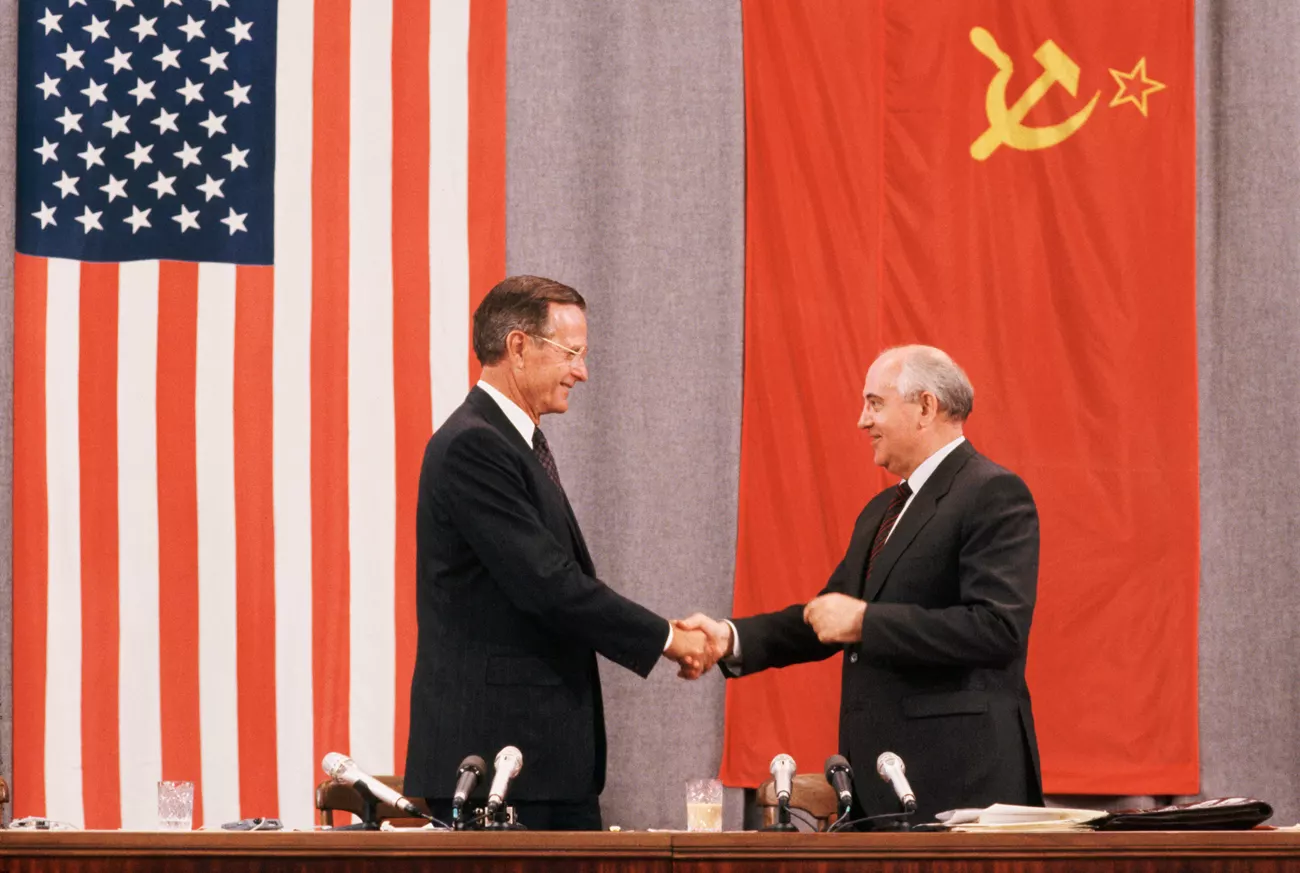
President Bush and Gorbachev shakeing hands after a press conference for the peace summit is Moscow, July 31, 1991, courtesy of National Park Service.
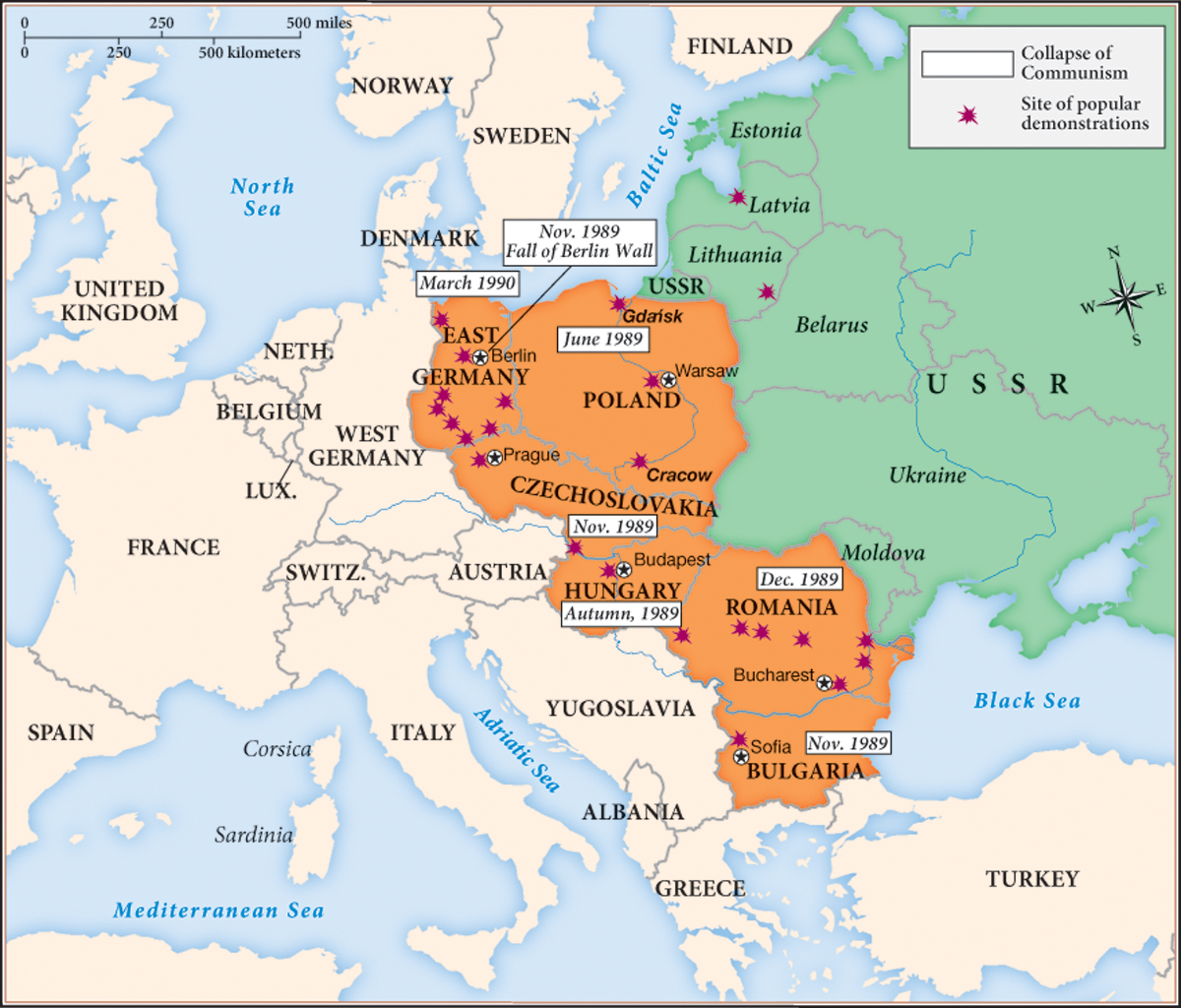
Map of Eastern Europe countries that transitioned from communism to democratic government, courtesy of Macmillian USA.
Summer of 1990, communism collapses in Eastern Europe, freeing countries like Poland, Hungary, and Romania from Communism control and went on to adopt a new system of democratic governments.
"The fall of communism is the proof that the human spirit cannot be crushed, that truth and love must prevail over lies and hatred."
- Czechoslovakia President Vaclav Havel, 1990
Process Paper
Thesis
Back